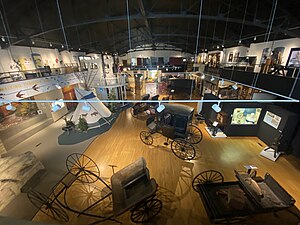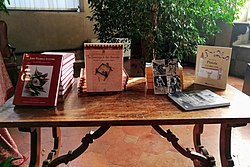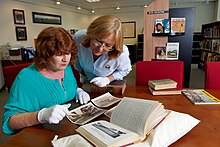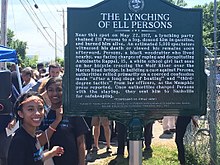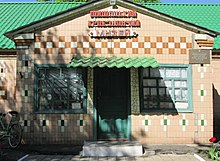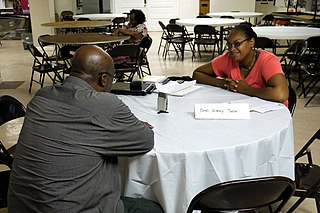
Oral history is the collection and study of historical information about people, families, important events, or everyday life using audiotapes, videotapes, or transcriptions of planned interviews. These interviews are conducted with people who participated in or observed past events and whose memories and perceptions of these are to be preserved as an aural record for future generations. Oral history strives to obtain information from different perspectives and most of these cannot be found in written sources. Oral history also refers to information gathered in this manner and to a written work based on such data, often preserved in archives and large libraries. Knowledge presented by Oral History (OH) is unique in that it shares the tacit perspective, thoughts, opinions and understanding of the interviewee in its primary form.

Industrial archaeology (IA) is the systematic study of material evidence associated with the industrial past. This evidence, collectively referred to as industrial heritage, includes buildings, machinery, artifacts, sites, infrastructure, documents and other items associated with the production, manufacture, extraction, transport or construction of a product or range of products. The field of industrial archaeology incorporates a range of disciplines including archaeology, architecture, construction, engineering, historic preservation, museology, technology, urban planning and other specialties, in order to piece together the history of past industrial activities. The scientific interpretation of material evidence is often necessary, as the written record of many industrial techniques is often incomplete or nonexistent. Industrial archaeology includes both the examination of standing structures and sites that must be studied by an excavation.

An archive is an accumulation of historical records or materials – in any medium – or the physical facility in which they are located.
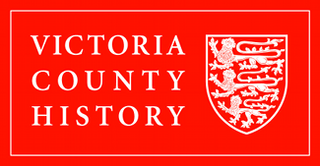
The Victoria History of the Counties of England, commonly known as the Victoria County History or the VCH, is an English history project which began in 1899 with the aim of creating an encyclopaedic history of each of the historic counties of England, and was dedicated to Queen Victoria. In 2012 the project was rededicated to Queen Elizabeth II in celebration of her Diamond Jubilee year. Since 1933 the project has been coordinated by the Institute of Historical Research in the University of London.
A family history society or genealogical society is a society, often charitable or not-for-profit, that allows member genealogists and family historians to profit from shared knowledge. Large societies often own libraries, sponsor research seminars and foreign trips, and publish journals. Some societies concentrate on a specific niche, such as the family history of a particular geographical area, ethnicity, nationality, or religion. Lineage societies are societies that limit their membership to descendants of a particular person or group of people of historical importance.

William George Hoskins was an English local historian who founded the first university department of English Local History. His great contribution to the study of history was in the field of landscape history.
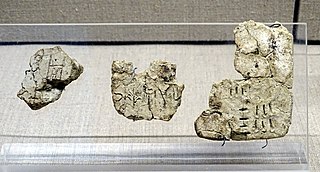
Recorded history or written history describes the historical events that have been recorded in a written form or other documented communication which are subsequently evaluated by historians using the historical method. For broader world history, recorded history begins with the accounts of the ancient world around the 4th millennium BC, and it coincides with the invention of writing.
Local history is the study of the history of a relatively small geographic area; typically a specific settlement, parish or county. English local history came to the fore with the antiquarians of the 19th century and was particularly emphasised by the creation of the Victoria County History series in England. Its establishment as a formal academic discipline is usually credited to W. G. Hoskins who also popularised the subject with his book The Making of the English Landscape.

History is the systematic study and documentation of the human past.
An architectural historian is a person who studies and writes about the history of architecture, and is regarded as an authority on it.
The following outline is provided as an overview of and topical guide to anthropology:
Irene Joan Thirsk, was a British economic and social historian, specialising in the history of agriculture. She was the leading British early modern agrarian historian of her era, as well as an important social and economic historian. Her work highlighted the regional differences in agricultural practices in England. She also had an interest in food history and local English history, in particular of Hadlow, Kent.
The Southern Historical Association is a professional academic organization of historians focusing on the history of the Southern United States. It was organized on November 2, 1934. Its objectives are the promotion of interest and research in Southern history, the collection and preservation of the South's historical records, and the encouragement of state and local historical societies in the South. As a secondary purpose the organization fosters the teaching and study of all areas of history in the South.
The Federation of Australian Historical Societies (FAHS) is the peak body for historical societies throughout Australia. It has eight constituent members, one in each of the Australian states and internal self-governing territories. It lobbies governments on behalf of the sector and has formed alliances with other related bodies. It promotes uniform national standards through guides and other publications and fosters historical research, writing and education through fellowships and awards.

John Bradley Hirst, was an Australian historian and social commentator. He taught at La Trobe University from 1968 until his retirement in 2006, edited Historical Studies—Australia's leading historical journal—from 1977 to 1980, and also served on the boards of Film Australia and the National Museum of Australia. He has been described as an "historian, public intellectual, and active citizen". He wrote widely on Australian history and society, publishing two well-received books about colonial New South Wales. Hirst also frequently published opinion pieces in the media.
Victor Henry Thomas Skipp was an English local historian, art collector and amateur philosopher, who left his estate to Kettle's Yard in Cambridge.

The Geelong Library and Heritage Centre is a regional library, archive and resource facility in the city of Geelong, Victoria, Australia. Geelong Free Library was begun in 1858. The Geelong Historical Records Centre was established in 1979 as a depository for significant historical records and archives from the district. The centre is a Place of Deposit, as part of the Public Record Office Victoria network of community archives designated for the preservation of Victoria's history. It is described as ...the largest regional archive in Victoria.
The historiography of the United Kingdom includes the historical and archival research and writing on the history of the United Kingdom, Great Britain, England, Scotland, Ireland, and Wales. For studies of the overseas empire see historiography of the British Empire.
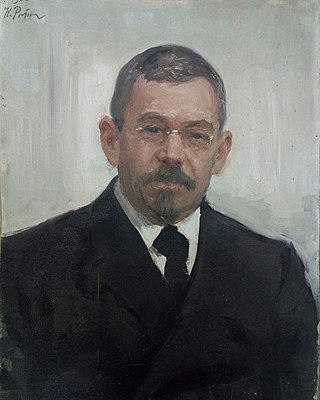
Dmytro Ivanovych Bahalii was a Ukrainian historian and public and political figure, one of founding members of the National Academy of Sciences of Ukraine, and a full member of the Shevchenko Scientific Society since 1923. He was also a professor and rector at Kharkiv University, and mayor of Kharkiv (1914–1917).
